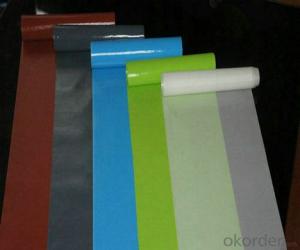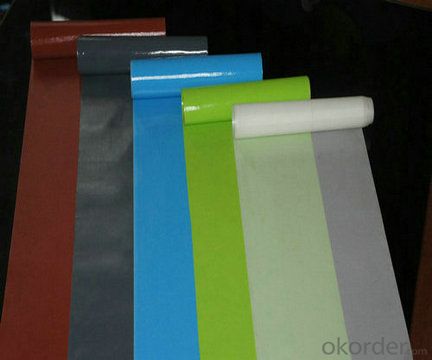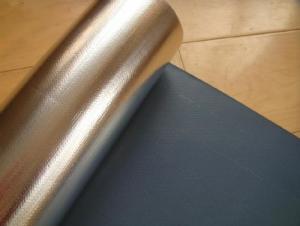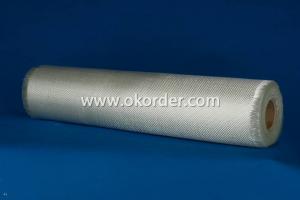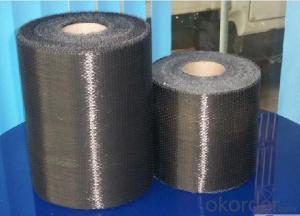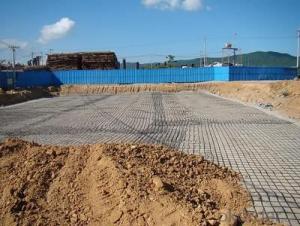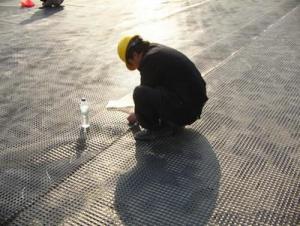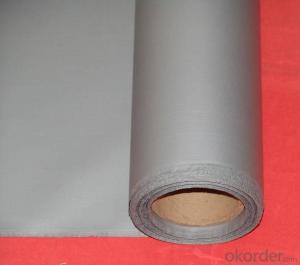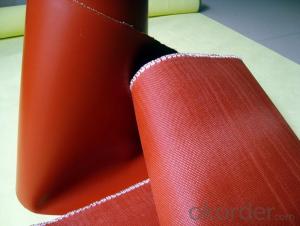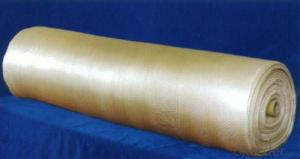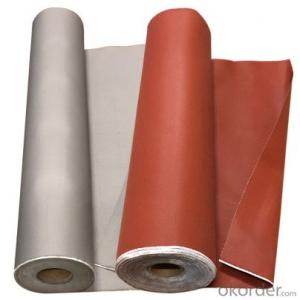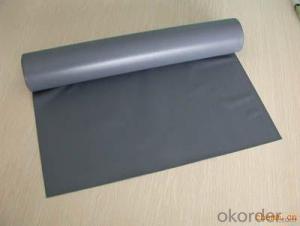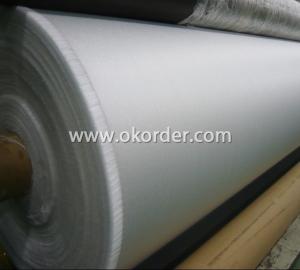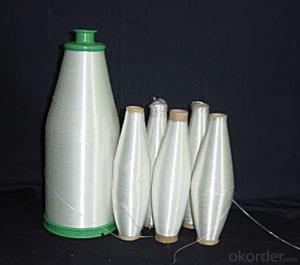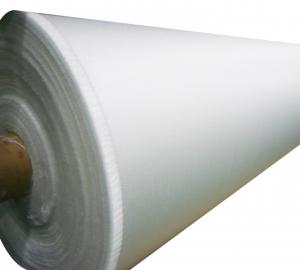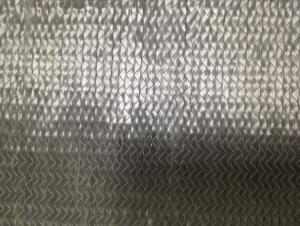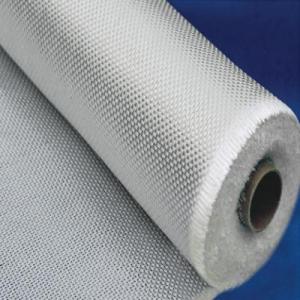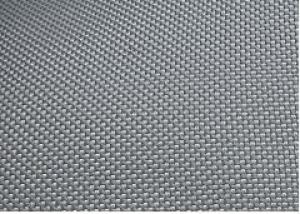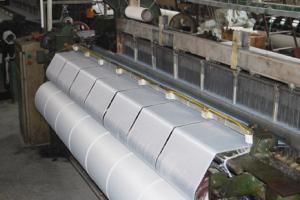Fiberglass Fabric with Silicone Coated 130gsm
- Loading Port:
- Shanghai
- Payment Terms:
- TT OR LC
- Min Order Qty:
- 500 m²
- Supply Capability:
- 50000 m²/month
OKorder Service Pledge
OKorder Financial Service
You Might Also Like
Fiberglass Fabric with Silicone Coated 130gsm
Fiberglass Fabric Description
Silicone coated fiberglass fabric is a fiberglass cloth, which possesses the properties of temperature resistance, anti-corrosion, high strength and is coated with organic silicone rubber.
Fiberglass Fabric Specification
Thickness:0.2mm-5mm
Width:100cm-150cm
Color;grey/red/silver/black
Weight(coating):130gsm-2800gsm
Model No | FSD2030 | FSD2030 | FSD2050 | FSD2100 | |
High temperature resistant(°C) | ≤280 | ≤280 | ≤280 | ≤280 | |
Low temperature resistant(°C) | ≥-40 | ≥-40 | ≥-40 | ≥-40 | |
Tensile intensity (N/50mm) | Warp | ≥1750 | ≥1750 | ≥2500 | ≥3500 |
Weft | ≥1280 | ≥1280 | ≥2100 | ≥3000 | |
Inflating burst intensity(Mpa) | ≥2.0 | ≥2.0 | ≥2.2 | ≥2.6 | |
Peeling intensity(N/m) | ≥450 | ≥450 | ≥520 | ≥600 | |
Insulation (kv/mm) | 16 | 16 | 18 | 18 | |
Weight (g/m*m) | 550-650 | 550-650 | 750-800 | 1500-1800 | |
Width(mm) | 1000±20 | 1000±20 | 1000±20 | 1000±20 | |
Thickness(mm) | 0.3-0.4 | 0.3-0.4 | 0.05-0.55 | 1.0-1.1 | |
color | Silver-gray, gray, red | lucency | Silver-gray, gray, red | Black, gray, red | |
Fiberglass Fabric Features:
1, Good performance on resisting high temperature and low temperature, -40°C-280°C;
2, High strength;
3, Ozone, oxide, light and weather aging resistance;
4, High insulation: dielectric constant:3-3.2, breakdown voltage: 20-50KV/MM;
5, Chemical corrosion resistant, oil-proofing, waterproofing (washable)
Fiberglass Fabric Application:
It has been widely used in construction, electric insulation,
chemical industry, pipeline ductile conjunction, large generating
Corrosion proofing field, machinery, metallurgy, sealing and so on.
Product Show
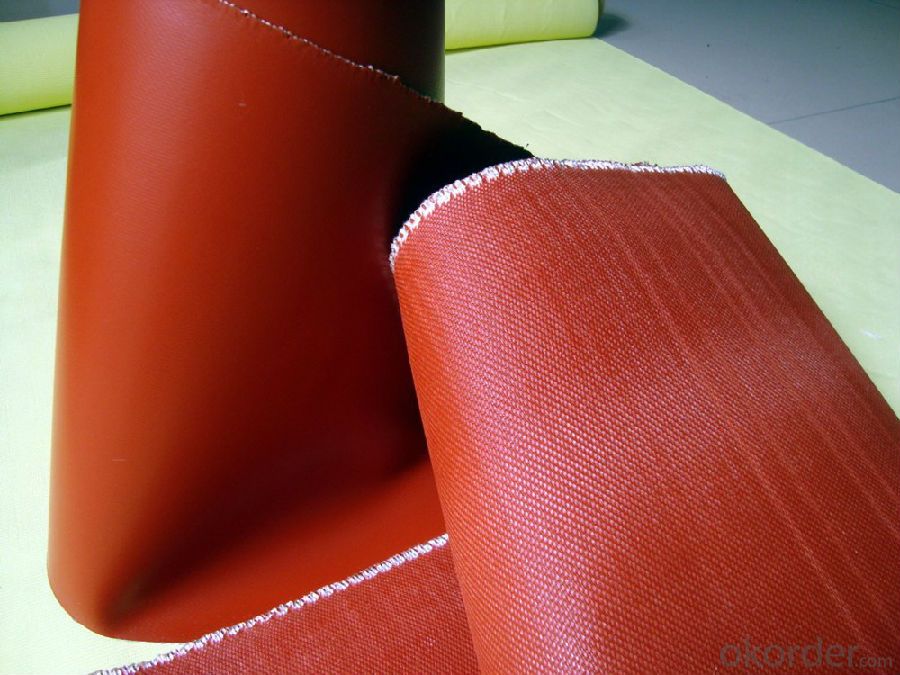
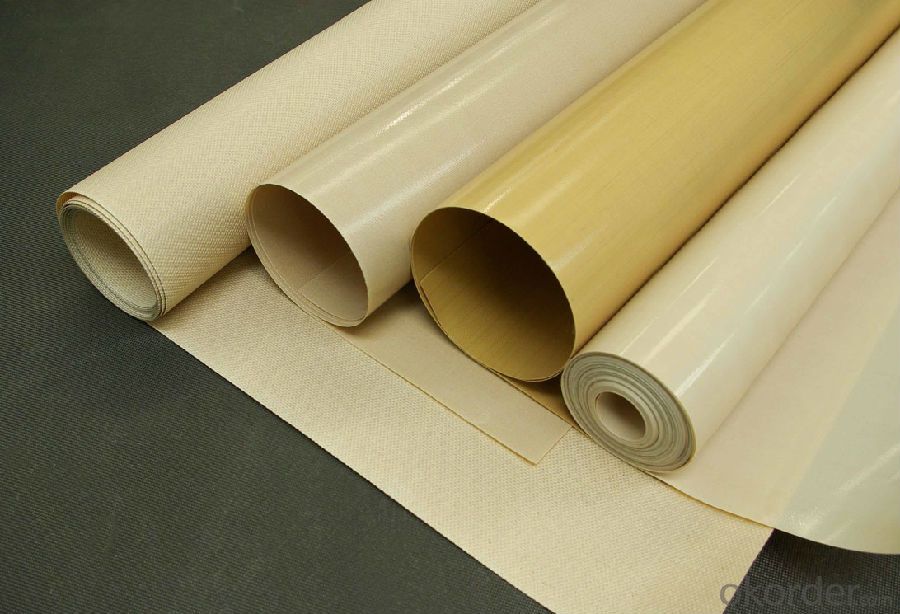
FAQ
1.What are the characteristics of fiberglass fabric?
a)Outstanding temperature resistance(from -70°C to +260°C)
b)Excellent chemical resistance
c)Superior non-stick surface, easy to clean
d)High dielectric strength
e)Dimensional stability
f)Resistance to UV, IR and HF
g)Non-toxic
2.How many methods to weave the fabric?
Four methods to weave the fabric:
a).Plain weave: it can be used in electricity insulation materials and reinforced materials in industry, because of inseparable structure, plain and clear lines.
b).Twill weave: compared with plain weave, it is of high density, high intensity, with a soft and loose structural weave. It can be used in ordinary reinforced materials, filter materials, and painting cloth.
c) Satin weave: compared with plain weave and twill weave, it is of high density,high intensity, with a soft and loose structural weave with a good texture. It is applicable for use as a higher reinforced material in machinery.
d).Gauze weave: said lattice twist weave. It can be used in spread model curtain,resin reinforced emery wheel gray cloth and lattice embed belt.
3.Can you offer us some samples?
We are willing to offer our customers best product&service,if it's necessary we can send
you sample for test;also we welcome all you customer have a trial order.
- Q: Can fiberglass fabric be used for insulation in silos?
- Indeed, insulation in silos can be achieved by employing fiberglass fabric. Renowned for its remarkable thermal insulation capabilities, fiberglass fabric emerges as a fitting option for silo insulation. By effectively hindering heat transfer, it ensures consistent temperatures within the silo, safeguarding the stored materials against drastic fluctuations in temperature. Furthermore, fiberglass fabric exhibits resistance to moisture and chemicals, rendering it a resilient and enduring insulation material for silos.
- Q: Are fiberglass fabrics suitable for use in marine environments?
- Yes, fiberglass fabrics are suitable for use in marine environments. They are highly resistant to water, chemicals, and UV rays, making them ideal for boat building, sail making, and other applications in marine settings. Additionally, fiberglass fabrics offer excellent strength-to-weight ratio, durability, and dimensional stability, making them a popular choice in the marine industry.
- Q: Two, fat and PVC paste resin paste into the sizing, coated on glass fiber cloth, so that after baking, how do not shrink?
- The auxiliary plasticizer can be added, and the dissolving capacity of the auxiliary plasticizer is relatively small, and when used, the viscosity is reduced and the storage is favorable.
- Q: Can fiberglass fabric be used for air ducts?
- Indeed, air ducts can make effective use of fiberglass fabric. Given its exceptional thermal and acoustic insulation attributes, fiberglass fabric has become a favored option for insulating air ducts. Its lightweight composition, flexibility, and resistance to fire, moisture, and mold growth make it an ideal material for incorporation into air duct systems. Moreover, the installation of fiberglass fabric is simple, and it aids in enhancing energy efficiency by minimizing heat loss or gain through the ductwork. Nevertheless, it is crucial to verify that the fiberglass fabric utilized in air ducts adheres to industry standards and regulations to guarantee optimal performance and safety.
- Q: Can fiberglass fabric be dyed?
- Yes, fiberglass fabric can be dyed. Fiberglass is a versatile material that can be colored using various dyeing techniques. However, it is important to note that the dyeing process for fiberglass fabric may differ from traditional fabric dyeing methods. Since fiberglass is a synthetic material, it may require specialized dyes or specific dyeing procedures. It is recommended to consult the manufacturer's instructions or seek professional advice to ensure successful and long-lasting results when dyeing fiberglass fabric.
- Q: How is fiberglass fabric used in the production of insulation ropes?
- Due to its exceptional thermal insulation properties and durability, fiberglass fabric is widely utilized in the manufacturing of insulation ropes. The fabric undergoes initial weaving or knitting using thin strands of fiberglass, resulting in a resilient and flexible structure. During the manufacturing process, it is customary to apply a heat-resistant silicone or acrylic coating to the fiberglass fabric. This coating serves to enhance its resistance to high temperatures and bolster its capacity to withstand wear and tear. Additionally, it functions as a preventive measure against the fabric becoming undone or frayed. To create the insulation ropes, the coated fiberglass fabric is skillfully braided or twisted, yielding a tightly woven rope-like formation. This construction technique allows the rope to effectively trap air and establish a thermal barrier, effectively impeding heat transfer and minimizing energy loss. The fiberglass fabric employed in insulation ropes exhibits remarkable resistance to fire, chemicals, and moisture, rendering it suitable for a range of industrial applications. It finds frequent use in HVAC systems, boilers, ovens, and other high-temperature environments where insulation is of utmost importance. In summary, fiberglass fabric assumes a critical role in the production of insulation ropes, offering outstanding thermal insulation, durability, and resistance to various environmental factors. These qualities make it an ideal material for insulating applications.
- Q: What are the different applications of fiberglass fabric in the oil and gas industry?
- Fiberglass fabric finds various applications in the oil and gas industry due to its excellent properties such as high strength, corrosion resistance, and thermal insulation. It is commonly used for insulation, fireproofing, and reinforcement purposes in pipelines, tanks, and equipment. Fiberglass fabric is also utilized for manufacturing composite materials in the form of pipes, gratings, and platforms, providing durability and resistance to chemicals and harsh environments. Overall, its versatility and reliability make it an essential material for enhancing safety and performance in the oil and gas sector.
- Q: Can fiberglass fabrics be used for insulation in pipelines?
- Yes, fiberglass fabrics can be used for insulation in pipelines. They are commonly used due to their excellent thermal insulation properties, high temperature resistance, and durability.
- Q: How does fiberglass fabric perform in moisture absorption?
- Fiberglass fabric is known for its excellent performance in moisture absorption. Due to its inherent characteristics and composition, fiberglass fabric has a very low moisture absorption rate. The fabric is made from fine fibers of glass that are woven together, creating a tight and dense structure. This structure prevents moisture from easily penetrating the fabric. Compared to other materials such as cotton or polyester, fiberglass fabric has a much lower moisture absorption rate. It does not readily soak up moisture like natural fibers, and it does not retain water for long periods of time. This is advantageous in applications where moisture resistance is important, such as in outdoor or marine environments. The low moisture absorption of fiberglass fabric also helps to maintain its dimensional stability. Even when exposed to high levels of humidity or moisture, the fabric does not swell or warp. This makes it a suitable choice for applications where maintaining shape and integrity is crucial, such as in composite materials or reinforcement applications. Furthermore, the low moisture absorption of fiberglass fabric also contributes to its resistance to mold and mildew growth. Since moisture is not easily absorbed by the fabric, it creates an unfavorable environment for the growth of these microorganisms. This property makes fiberglass fabric a popular choice in applications where moisture resistance and hygiene are important, such as in the manufacturing of medical equipment or food processing industry. In summary, fiberglass fabric performs exceptionally well in moisture absorption. Its low moisture absorption rate, dimensional stability, and resistance to mold and mildew growth make it a reliable choice in various industries and applications.
- Q: Are fiberglass fabrics resistant to chemicals?
- Yes, fiberglass fabrics are generally resistant to chemicals.
Send your message to us
Fiberglass Fabric with Silicone Coated 130gsm
- Loading Port:
- Shanghai
- Payment Terms:
- TT OR LC
- Min Order Qty:
- 500 m²
- Supply Capability:
- 50000 m²/month
OKorder Service Pledge
OKorder Financial Service
Similar products
Hot products
Hot Searches
Related keywords
